Coronavirus Australia live news: Abuse survivor Grace Tame named Australian of the Year
Grace Tame, the Let Her Speak advocate who campaigned for survivors of sexual abuse has been announced as Australian of the Year for 2021.
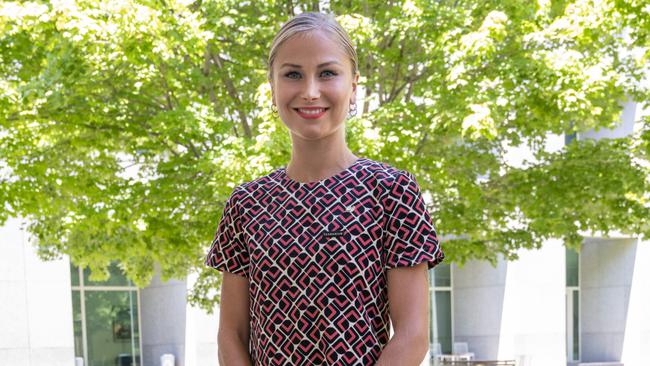
- Abuse survivor named Australian of the Year
- Australia suspends travel bubble with NZ
- Premier urges Aus Day protesters: follow health orders
- NZ case is SA variant
- Zero new cases extends NSW streak
- No new Queensland local cases
- TGA approves Pfizer vaccine
- Victoria in 19th day of no cases
- NZ records first case in 2 months
Welcome to The Australian’s rolling coverage of the ongoing coronavirus pandemic. Grace Tame, the Let Her Speak advocate who campaigned for survivors of sexual abuse has been announced as Australian of the Year for 2021. Australia has suspended its travel bubble with New Zealand, effective immediately, after a locally transmitted COVID case in NZ was identified as the more infectious South African variant. The TGA has provisionally approved the Pfizer vaccine for Australia. There are no new locally transmitted cases in NSW, Qld or Victoria.
Jess Malcolm 10.20pm: O’Brien turns down Australia Day award
Journalist and broadcaster Kerry O’Brien has decided to turn down his Australia Day Award in protest to the decision to give the country’s highest honour to Margaret Court.
Mr O’Brien wrote to the Governor-General David Hurley on Sunday, citing that he could not accept his honour from the same body that would make “such a deeply insensitive and divisive decision.”
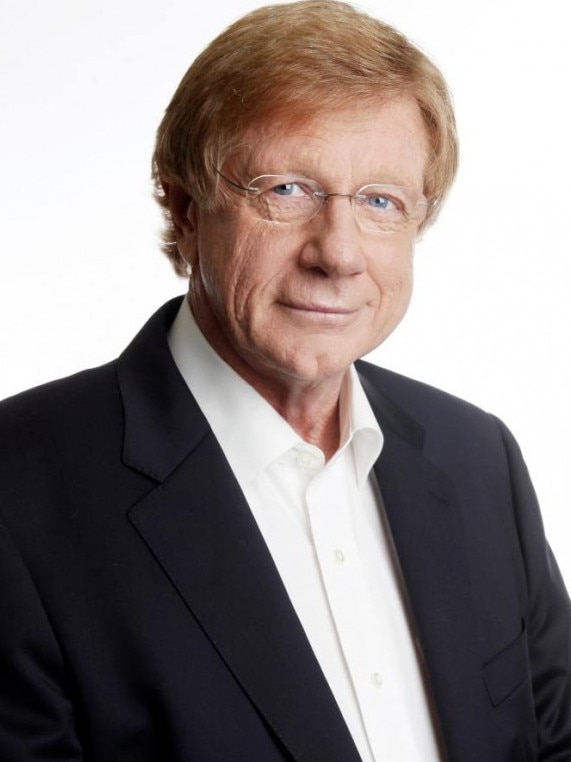
“I believe the decision to award Australia’s highest honour to Margaret Court may serve to erode the hard-fought gains made over decades in reducing the impact of discrimination against members of the LGBTQ+ community,” the journalist and former ABC current affairs host wrote in a letter to the office of the Governor-General, David Hurley.
“Margaret Court was a great tennis player who thrilled most Australians in her tennis years including me, but her hurtful and divisive criticisms relating to the fundamental rights of the LGBTQ+ community are clearly repugnant to many Australians,” he said.
“I believe the decision to present her with this award was deeply insensitive and must undermine community respect for awards that were created to celebrate a true spirit of community, not divide it.”
Mr O’Brien was to be awarded for distinguished service to the broadcast media and to journalism as a current affairs presenter, interviewer and reporter.
Jess Malcolm 9.45pm: Pfizer confident of delivering doses despite global pressure
Pfizer Australia managing director Anne Harris said the company is confident that it will deliver on the 10 million doses ordered by the federal government, despite global pressure on vaccine supplies.
“We are still on track,” Ms Harris told the ABC. “We had the intention around mid to late February, so we are still on track to deliver those first doses within February.”
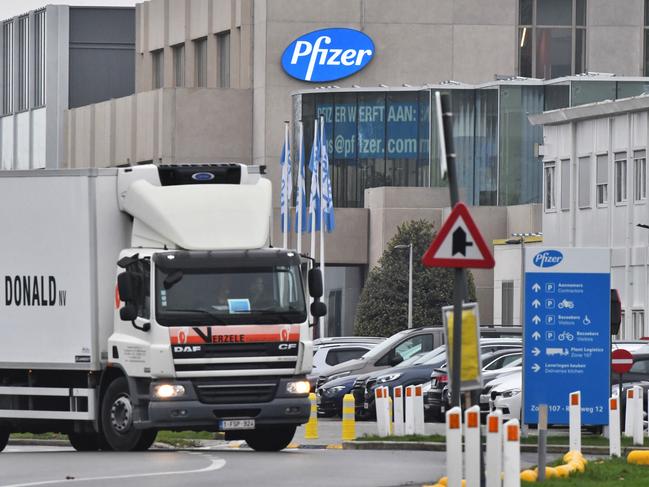
Due to limited international stocks of the leading vaccine, Ms Harris said there’s been a change to the dosing schedule in order to cope with the huge number of requests.
The original recommended schedule was to administer two doses of the vaccine, three weeks apart, but Ms Harris said this may be subject to change in a pandemic context.
“There has been a slight change in terms of how we’re approaching the doses and that’s because we have had a huge number of requests for additional doses from around the world,” she said.
“Clinical trials had a period of 21 days between the first dose and the second. That information has now been shared with all the regulators. It now will become, in a pandemic situation, it is up to those countries, it is up to those guidelines to decide how they move forward.”
Pfizer last week said it would temporarily slow supplies of the vaccine to Europe in order to make manufacturing changes to boost output, sparking outrage in some countries.
Jess Malcolm 8.31pm: Grace Tame named Australian of the Year
Grace Tame, the Let Her Speak advocate who campaigned for survivors of sexual abuse has been announced as Australian of the Year for 2021.
Ms Tame fought for the right to publicly tell her story as a survivor of rape, campaigning to overturn Tasmanian sexual assault victim gag laws.
Congratulations to your 2021 Australian of the Year, Grace Tame! #ausoftheyear #reflectrespectcelebrate
— AusoftheYearAwards (@ausoftheyear) January 25, 2021
Thanks to our Australian of the Year category partner, @auspost pic.twitter.com/OU6Wby8lKG
In her speech during the awards ceremony, she thanked Let Her Speak creator Nina Funnell, and shared the recognition with other brave survivors.
“Publicly, I was silenced by law,” Ms Tame said. “Not anymore. Australia, we’ve come a long way but there’s still more work to do in a lot of areas. Child sexual abuse and cultures that enable it still exist.
“Grooming and its lasting impacts are not widely understood. Predators manipulate all of us - family, friends, colleagues, strangers, in every class, culture and community.”
Ms Tame called for Australians to redirect their discomfort on the topic of sexual abuse, citing conversation as the primary way to end child abuse.
“This year and beyond, my focus is on empowering survivors and education as a primary means of prevention,” Ms Tame said.
“It starts with conversation. We’re all welcome at this table. Communication breeds understanding and understanding is the foundation of progress. Lived experience informs structural and social change. When we share, we heal.
“So let us redirect this discomfort to where it belongs, at the feet of perpetrators of these crimes. Together, we can redefine what it means to be a survivor.
“Together, we can end child sexual abuse.”
Jess Malcolm 8.26pm: Australian of the Year awards presented
The annual Australian of the Year Awards are well underway with a number of awards already announced.
Dr Miriam-Rose Ungunmerr Baumann has been named Senior Australian of the Year for 2021.
Congratulations to your Senior Australian of the Year for 2021, Dr Miriam-Rose Ungunmerr Baumann AM! #ausoftheyear
— AusoftheYearAwards (@ausoftheyear) January 25, 2021
Thanks to our Senior Australian of the Year category partner, @healthgovau @MiriamRoseFound pic.twitter.com/bLW4M4tLcN
Isobel Marshall has been named Young Australian of the Year for 2021.
Congratulations to your 2021 Young Australian of the Year, Isobel Marshall #ausoftheyear
— AusoftheYearAwards (@ausoftheyear) January 25, 2021
Thanks to our Young Australian of the Year category partner, @ausgov pic.twitter.com/kkztCstlCR
Rosemary Kariuki has been named Australia’s Local Hero for 2021.
Congratulations to Australia’s Local hero for 2021, Rosemary Kariuki! #ausoftheyear pic.twitter.com/mK1fNWbaOS
— AusoftheYearAwards (@ausoftheyear) January 25, 2021
Australian musician Christine Anu has also performed a tribute to all essential workers and frontline staff for their efforts during the coronavirus pandemic.
The Australian of the Year for 2021 will be announced shortly.
Jess Malcolm 7.50pm: Morrison’s message of hope at Australian of the Year awards
Prime Minister Scott Morrison has delivered a message of hope in his opening speech at the Australian of the Year Awards for 2021 tonight in Canberra.
From bushfires to COVID-19, Mr Morrison said that in a year of “adversity” Australians proved to be people who persevered and overcame.
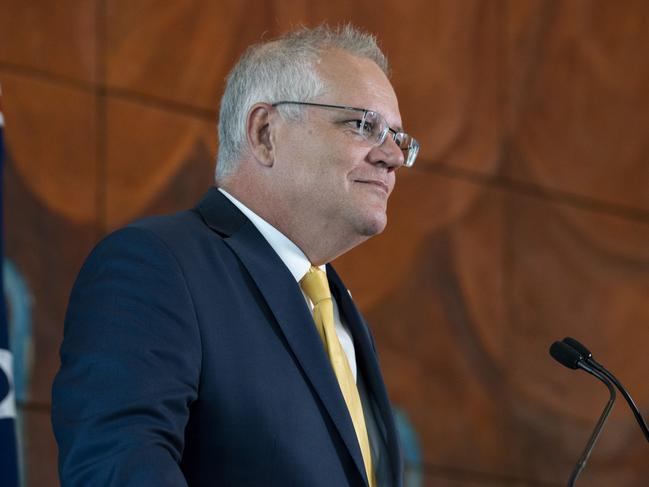
“This past year we faced adversity once again,” Mr Morrison said. “Nature is confronting us in a different form, beckoning us again to persevere, and we have. And we continue to do so even now.
“The story of Australia is of a people who persevere and overcome. Who knows that reward and effort, enterprise and fairness, justice and hope accompany each other.
“Our stores now number more than 25 million Australians. They’re all important. They’re all respected. Woven together to make us strong.
“We’re a people who contend and prevail and as we prevail, always by looking ahead, through debate, effort and striving, drawing out the very best in each other.”
The annual awards are held at the National Arboretum and will honor recipients from four categories.
READ MORE: Our Australian of the Year
Jess Malcolm 6.58pm: Vaccine hesitancy ‘could be as high as 30pc’
A coalition of immunisation and technology experts are calling for the federal government to pass new laws that require social media companies to moderate false claims made about COVID-19.
The Immunisation Coalition warns there could be as high as 30 per cent of Australians who are cautious about receiving the vaccine, saying a successful vaccine rollout could be hindered by medical misinformation spread on social media.
The group’s chair Dr Rodney Pearce urged the federal government to step in, backing Australia’s vaccine approval methods.
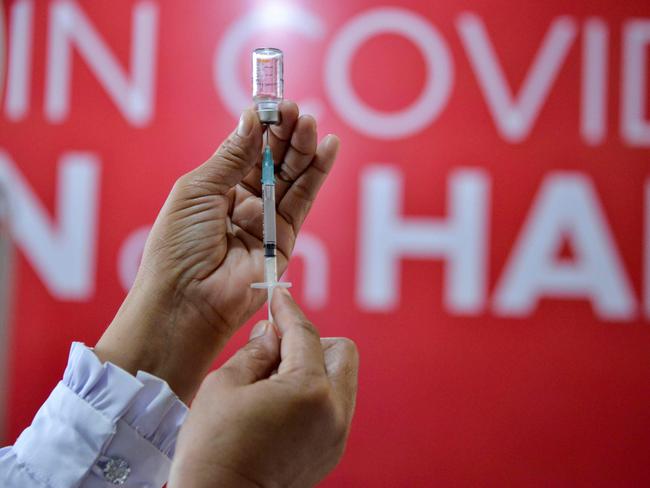
“Our concern is that we don’t want any vaccine hesitancy,” Dr Pearce said.
“We have been waiting so long, people are starting to invent lots of reasons why maybe they don’t want it.
“We don’t want false information. We want some sort of check on it. So if the information we know to be false, we just want that to be stopped or at least a flag raised to say, this isn’t true and talk about all of the interesting and good things which we hope we want to get stuck into.
“Australia has one of the best safety monitoring systems in the world. If we see some major signals we will be stopping these vaccines, this program as quickly as any. So we want to have that honest debate and so we can stop or start or move rather than people jumping at shadows.”
This comes after the Therapeutic Goods Administration announced it has approved the Pfizer vaccine today, and the federal government cited Australia’s vaccine rollout is on track with the first doses expected in late February.
READ MORE: Why we’re lucky to be getting the Pfizer vaccine
Jess Malcolm 6.15pm: NSW Police’s warning on planned protests
NSW Police are urging people not to participate in protests tomorrow, threatening that there will be large numbers of police officers out “in force”.
Assistant Commissioner Michael Willing announced the police will launch a significant policing operation tomorrow, urging people to celebrate Australia Day in a COVID-safe way.
“You will see large numbers of uniformed and plain clothed police out and about tomorrow from the early hours of the morning, stretching throughout the day and into the night,” Assistant Commissioner Willing said.
NSW encouraged to celebrate in a COVID-safe way this Australia Day pic.twitter.com/vleV0q0Pgg
— NSW Police Force (@nswpolice) January 25, 2021
He likened tomorrow’s festivities to New Year’s Eve, asking people to abide by the current NSW health restrictions of no more than five visitors to a home.
“We’re in a current pandemic and we’re asking people to abide by the current health orders as they apply to public gatherings and inside residential premises,” he said.
“You cannot be part of a public gathering for the purpose of protesting with more than 500 people. I am asking people: do not come in and be part of that public gathering; find another way to express your views and opinions. I know these are sensitive issues but we are still in the middle of a global pandemic.
“This is going to be a difficult and hot day tomorrow.”
READ MORE: ABC buckles after ‘Invasion Day’ furore
Jamie Walker 5.43pm: Leifer extradited before Israel’s flight shutdown
Accused sex predator Malka Leifer has been put on the plane from Israel to Melbourne, capping a near decade-long campaign by the sisters she is alleged to have abused to have her face court in Australia.
🛑 #BREAKING: #MalkaLeifer, facing allegations of child sex abuse, was just put on one of last planes to #Australia, before #Israel shut down the Airport (due to COVID restriction). One step closer to justice! #BringLeiferBack pic.twitter.com/6D6niqIeiQ
— Arsen Ostrovsky (@Ostrov_A) January 25, 2021
The 54-year-old former Jewish school principal was handed over to Victoria police officers in Tel Aviv on Monday after the extradition order her lawyers in Israel fought tooth and nail to avoid was finally executed.
She was escorted on to a commercial flight only hours before a COVID lockdown on air travel in and out of the Jewish state was to come into force.
Nicholas Jensen 4.25pm: Australia suspends travel bubble with New Zealand
Australia has suspended its green zone travel bubble with New Zealand for 72 hours, effective immediately, Federal Health Minister Greg Hunt has announced.
The decision comes after a woman contracted New Zealand’s first local case of COVID-19 in two months, with authorities revealing she was infected with the highly-transmissible South African variant.
Two green zone flights were due to travel to Australia from New Zealand today.
All passengers from New Zealand with a flight scheduled in the next 72 hours will need to delay travel.
“Anyone who has arrived into Australia on a flight from New Zealand on or since January 14 is asked to isolate and arrange to be tested and to remain in isolation until such time as they have received a negative test,” Mr Hunt said.
He said the move to close the bubbles was being made out of an “abundance of caution” while more is learned about the case.
The border closure is for 72 hours initially, but the door has been left open to extend it.
Asked about reasons for the suspension, Mr Hunt said that the AHPPC had “unanimously recommended” an immediate response from the government to implement the 72-hour pause.
“It was simply because of the length of period between the infection and the confirmation and that this was one of the potentially far more transmissible variants,” he said.
The New Zealand case of concern is a 56-year-old New Zealand woman, who recently returned from Europe, and tested positive 10 days after completing two weeks in isolation.
The case marks New Zealand’s first case of COVID-19 for more than two months, and has sparked urgent contract-tracing efforts north of Auckland.
Mr Hunt said this wasn’t necessarily an indication a single case would always shut down green zone travel bubbles.
“As a general rule, no,” he said,
Emily Cosenza 4.05pm: SA border could open to all of Sydney by Sunday
Sydneysiders could travel to South Australia as soon as Sunday if the Harbour City continues with its streak of recording no new locally acquired cases of COVID-19.
SA health authorities have long called for 14 days of no recorded community transmission before lifting its border restrictions with another jurisdiction.
Premier Steven Marshall said Greater Sydney was “on track” to have its border restrictions eased at midnight on Saturday.
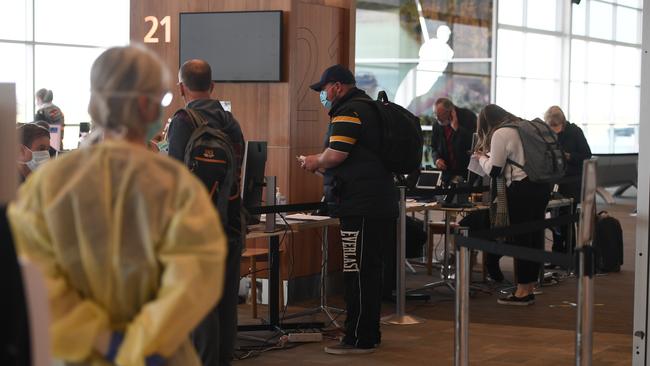
Mr Marshall warned the border ban would not be lifted if health authorities deemed it not safe to do so.
SA reset its 14-day countdown after six locally acquired cases were recorded in the Greater Sydney hotspot area on Sunday, January 24.
It has been eight days since the last reported case of community transmission.
NSW had three new confirmed coronavirus cases on Monday but all were returned travellers in hotel quarantine, while SA recorded no new infections.
Paul Garvey 3.10pm: Labor senator’s Australia Day ‘white supremacy’ claim
A Labor senator has come under fire after for labelling Australia Day a celebration of “white supremacy”.
Sue Lines, a senator for Western Australia who is also the deputy president of the senate, wrote on her Facebook page that it was time to change the date of Australia Day.
“Australia Day celebrates white supremacy and the legacy of colonisation that is directly linked to the various ways we continue to fail First Nations people,” she wrote.
“It’s wrapped up in modern racist policies like the cashless debit card, with deaths in custody and our failure to close the gap.
“January 26th should be a day of mourning and reflection.”
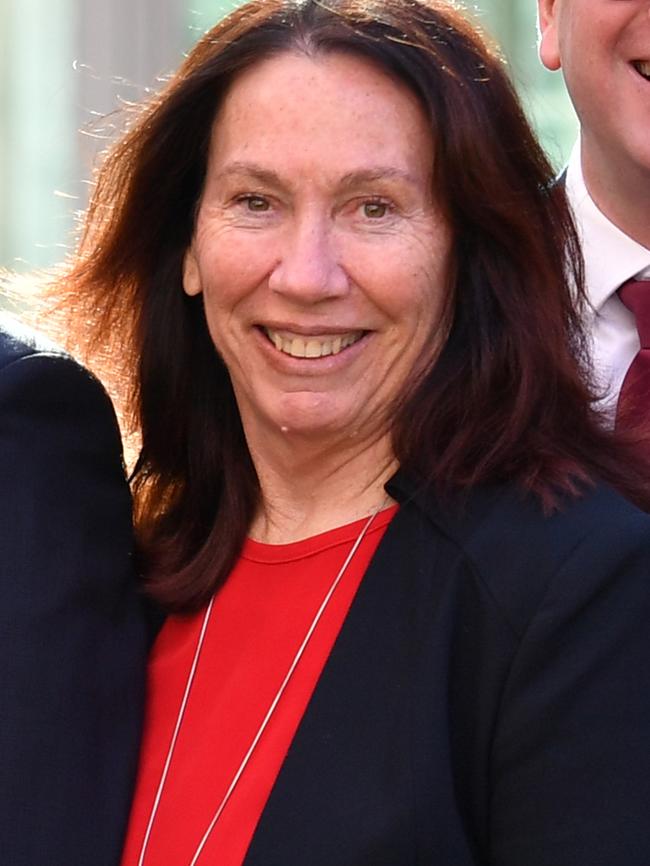
She said the current date commemorated the arrival of Arthur Phillips in Sydney in 1788, which began “a destructive era of colonisation, genocide and dispossession”.
“It is time to end the formal celebration of Australia Day on the 26th of January,” she wrote.
“This isn’t about guilt or shame, it is about being honest about our past and respecting our First nations people.”
Senator Lines also paid for the comments to be promoted on the Facebook platform.
The comments and their promotion were seized upon by WA opposition leader Zak Kirkup, who described the post as “shameful and wholly unacceptable”.
“That statement by one of the most senior Labor politicians here in Western Australia is divisive,” he said.
READ the full story here.
Richard Ferguson 2.10pm: Taylor, Kerry to set up emissions reduction group
Energy Minister Angus Taylor spoke to his United States climate counterpart John Kerry for the first time on Monday, with the two agreeing to set up a joint working group to reduce emissions.
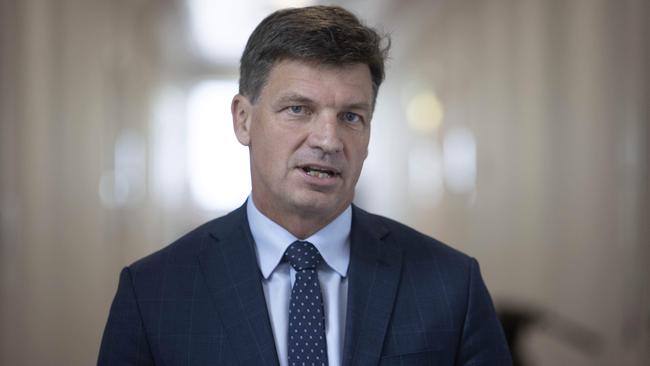
Government sources say Mr Kerry — US President Joe Biden’s Special Envoy on Climate and an ex-secretary of state – welcomed Australia’s ambition to reach net zero emissions as soon as possible.
Mr Taylor and Mr Kerry focused their first talks on collaborating on research and private sector investment to boost emerging low emissions technologies.
The Australian understands the two agreed on setting up a joint working group to boost low emission technology.
The call came after Scott Morrison told The Weekend Australian that the political debate about reaching a carbon-neutral future is over.
The Prime Minister also said last week there would be no update to medium-term targets ahead of Glasgow because there was not a requirement under the Paris Agreement to commit to a 2035 target this year.
READ MORE: Politics of carbon has ended
Rachel Baxendale 1.40pm: Three Victorian quarantine cases are children under ten
Three of Monday’s six new coronavirus cases in Victoria are in children under 10, the state’s Department of Health and Human Services has confirmed.
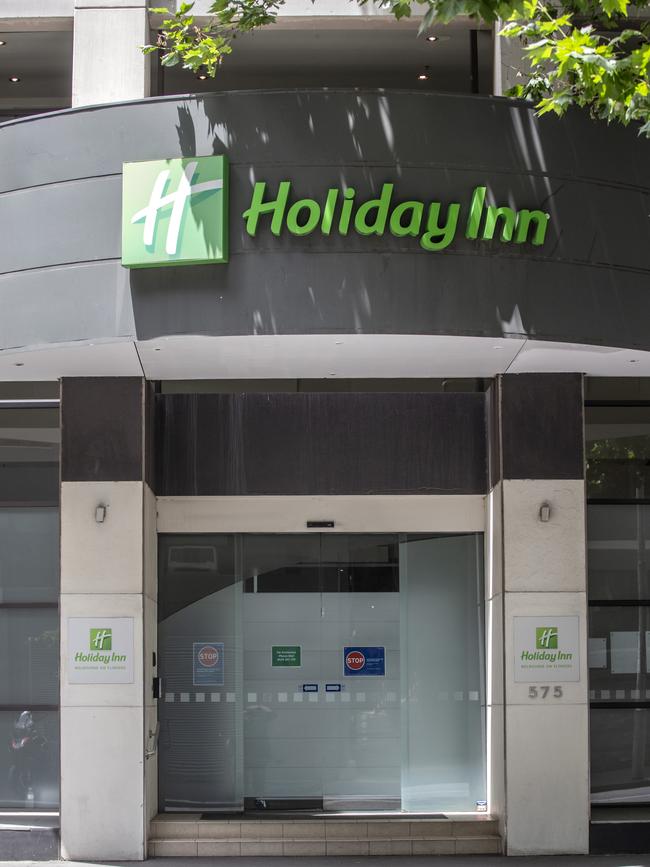
The six new cases – all of which are in international return travellers in hotel quarantine, none of whom are linked to the Australian Open tennis tournament – include those in a man and a woman in their 40s, a woman in her 20s, and two boys and a girl, all aged under 10.
Victoria currently has 31 active coronavirus cases, one of which is a locally acquired case linked to the Black Rock cluster, nine of which are linked to the Australian Open tennis tournament, and the remaining 21 of which are in other recently returned international travellers in hotel quarantine.
READ MORE: Push to rescind Unified Security’s licence after hotel quarantine debacle
Ellie Dudley 1.34pm: Gladys urges Aus Day protesters follow health orders
NSW Premier Gladys Berejiklian has urged people planning to protest in Sydney CBD on Australia Day to adhere to the state’s current health orders.
“Our strong preference is that people stay home,” the Premier said on Monday.
“I respect the strength of feeling that people have on these issues, but the health orders are there to keep everybody safe.“
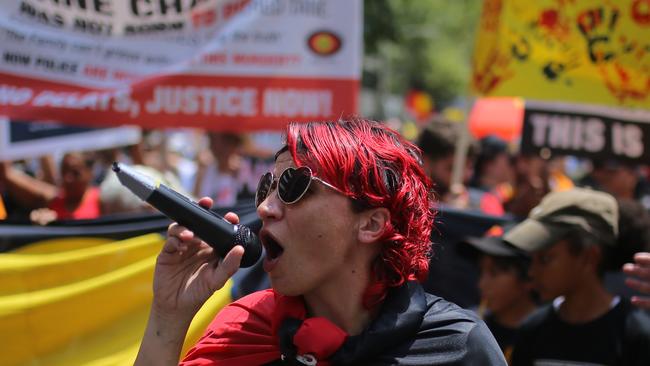
Restrictions currently limit protests within greater Sydney to 500 attendees.
Police Minister David Elliott also said police would be enforcing the public health orders on the day.
“I can’t believe any organisation, let alone one that pretends to advocate for Indigenous rights, would say ‘let’s put aside the risk of COVID-19, let’s breach public health orders, let’s get together despite the pleas of the community asking them not to get together’,” he said.
The Police Minister denied claims that the government’s opposition to the protests was politically charged.
READ MORE: ABC buckles after ‘Invasion Day’ controversy
Ellie Dudley 1.12pm: Testing queues backed up in New Zealand
Queues are banking up for hundreds of metres in New Zealand after a locally transmitted case was detected in the north island.
One community testing centre in Parakai, northwest of Auckland, reportedly has a line of cars spanning for over a kilometre.
The case has been identified as the more highly-transmissible variant originating from South Africa.
READ MORE: Coronavirus: Australia’s plan ‘better than Kiwi strategy’
Rachel Baxendale 1.08pm: No new Australian Open cases
None of Victoria’s six new coronavirus cases in international travellers in hotel quarantine are in people associated with the Australian Open Tennis tournament, COVID-19 Quarantine Victoria has confirmed.
There are currently nine people associated with the tennis who have tested positive for the virus.
There are 281 people, including airline crew and 72 tennis players, who are being treated as close contacts and are therefore in hard lockdown and unable to leave their hotel rooms.
A total of 970 people associated with the Australian Open are currently in hotel quarantine.
There were 938 swabs taken from these people in the 24 hours to 11pm on Sunday.
There have been 7996 swabs taken from the group since January 14 when the Australian Open hotel quarantine program commenced.
Caroline Schelle 12.40pm: Aussie elite’s ‘shocking’ pandemic windfall
Australia’s billionaires netted an extra $85bn since the global coronavirus pandemic was declared last year.
That’s according to a report released on Monday by Oxfam, the global non-profit group whose mission is to eliminate poverty.
The cash would be enough to give 2.5 million Australians a one-off payment of just over $33,300 each, it found.
The extreme inequality was “particularly shocking” given it happened in the context of the country’s first recession in almost 30 years, Oxfam Australia chief executive Lyn Morgain said.
“As hundreds of thousands of people were losing their jobs and entering an incredibly unstable employment market, this small group of elite Australians saw their incomes recover very quickly before beginning their upwards trajectory once more,” Ms Morgain said.
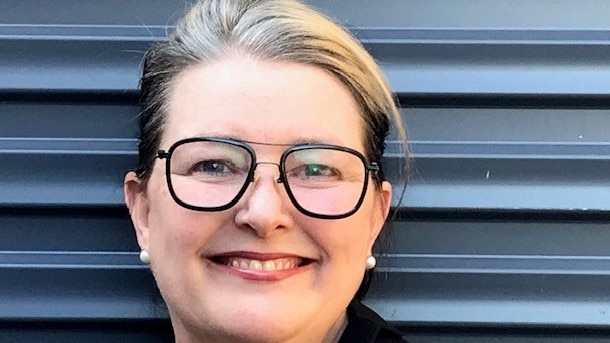
A survey the non-profit commissioned of 295 economists from across 79 countries revealed 87 per cent of the respondents expected an “increase” or “major increase” in income inequality because of the pandemic.
Four Australian economists who took part found the coronavirus crisis would lead to the sharpest increase in inequality in at least 50 years in the country.
Women and ethnic minorities would be impacted the most in Australia, they found.
“This global emergency has truly laid bare the entrenched injustices of our current economic system, which only serves to deepen inequality, particularly in times of crisis,” the Oxfam Australia boss said.
MEDIA RELEASE:
— Oxfam Australia (@OxfamAustralia) January 25, 2021
Poorest bear economic brunt of pandemic while billionaires’ fortunes boom
Oxfam CEO @MsLynM :
“This global emergency has truly laid bare the entrenched injustices of our current economic system, which only serves to deepen inequality.â€https://t.co/1SOP2deLY2 pic.twitter.com/LI7nPj5v9c
She said it was up to governments across the globe to ensure communities emerged from the crisis and extreme inequality was not inevitable.
“The fight against inequality and poverty must be at the heart of economic recovery efforts,” Ms Morgain said.
The non-profit boss wants the federal government to invest in public services and low carbon sectors to create new jobs.
“They must ensure the richest individuals and corporations contribute their fair share of tax to pay for it,” she said.
The report’s release coincides with the World Economic Forum meetings that normally happens at Davos in Switzerland but is being held virtually in 2021.
Thousands of business leaders, politicians and economists can attend the forum to discuss global issues.
Teenage climate activist Greta Thunberg last year blasted climate inaction and the lack of action on ending fossil fuel exploration.
“Our house is still on fire. Your inaction is fuelling the flames by the hour. We are telling you to act as if you loved your children above all else,” she told the forum.
Ellie Dudley 12.40pm Fletcher responds to proposal to stop fake Covid news
Communications minister Paul Fletcher has responded to requests from Reset Australia to mandate “live lists” to assist in identifying COVID-19 misinformation.
Reset Australia has written to all federal ministers urging the Australian government to create the lists that could reveal demographic information of people sharing the fake news.
Misinformation is undermining public health efforts to stop COVID.
— Reset Australia (@ausreset) January 24, 2021
The first step to stopping misinformation, is knowing exactly what content is out there - and who is seeing it.
That's why today, we're launching a policy we call the Live List #Auspol https://t.co/roYePUAaMO pic.twitter.com/RwD61HCjOC
“During COVID-19, we’ve seen first-hand the harm misinformation can cause as it spreads rapidly online,” a spokesperson for Mr Fletcher told The Guardian Australia.
“It can create public confusion and is particularly harmful to those most vulnerable in our community.
“Following the Australian Competition and Consumer Commission’s digital platforms inquiry, the government tasked the Australian Communications and Media Authority with overseeing the development of the voluntary code, and expects an industry-wide code to be in place early this year.”
Once misinformation gathers 1000 or more impressions, tech companies should be forced to publish details of the post, according to a document released by Reset Australia in September 2020.
READ MORE: Inevitable Big Tech will pay for Australian news content, says Treasurer
Ellie Dudley 12.20pm Brandis blasted for flying home while Aussies stranded
George Brandis, Australia’s high commissioner to the United Kingdom, has faced criticism for returning to Australia over Christmas and spending a month in Queensland.
Other ambassadors and high commissioners stationed across the globe are also believed to have returned, the AAP reports.
His visit to Australia has been criticised as around 38,000 Australians are still stranded overseas and struggling to get home due to limited travel caps.
Labor MP Joel Fitzgibbon, while not critical of Mr Brandis specifically, questioned the process which allowed him to return while many others could not.
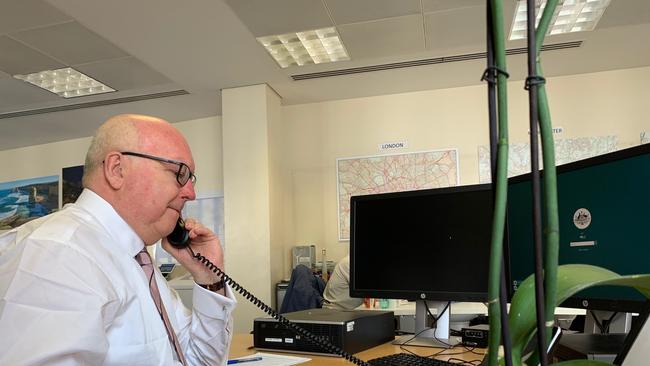
“I’m not so critical of George, I’m critical of the system which keeps giving us these inconsistencies,” he said.
“People can’t see their loved ones that may be dying but George is fairly able to frolic back into the country. Common sense has to prevail here.”
Prime minister Scott Morrison, when questioned on this at a press conference this morning, defended the actions of Mr Brandis.
“I’ll give you the facts. He came back for meetings here in Australia, like many other heads of mission. He did not take the place of any other Australian,” Mr Morrison said.
“He got on the same plane that anyone else would. He spent two weeks here quarantining before he engaged in those meetings.”
MORE: Hotel caps fixed: stranded passengers forced to wait
Nicholas Jensen 11.45am: NZ’s new case is South African virus variant
The locally transmitted case of COVID-19 in New Zealand has been identified as the South African variant, COVID recovery minister Chris Hipkins says.
The South African variant is understood to be more infectious than the original variant of virus.
The case — a 56-year-old woman who lives south of Whangarei — is in managed isolation in the Pullman Hotel in Auckland.
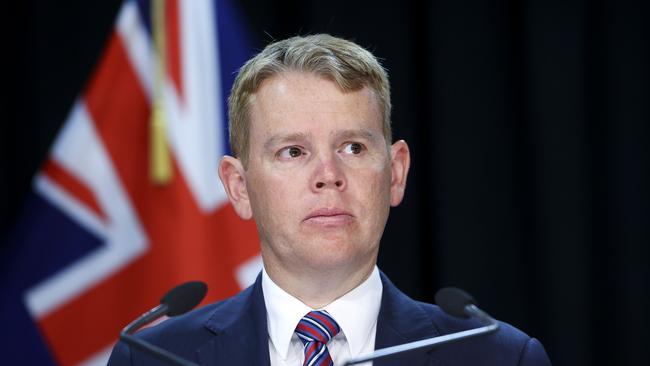
Director-General of Health Dr Ashley Bloomfield has asked people who are not symptomatic and have not come into contact with the case to “stand back” and allow those who need the test to go first.
Travellers who stayed in MIQ at Pullman Hotel from January 9-24 are being asked to self-isolate immediately.
Mr Hipkins confirmed CCTV footage from the hotel is being reviewed to look for interaction.
New Zealand authorities have confirmed the woman likely contracted it from another returned traveller on the same floor as her room in her quarantine hotel.
Mr Hipkins said the source was likely to be a fellow returning traveller at the hotel, adding it was “encouraging” the woman’s husband and her hairdresser had returned negative tests.

Nicholas Jensen 11.45am: Zero new community cases in SA
South Australia has recorded no new community transmitted cases of COVID-19.
One case was reported as acquired overseas, which is currently isolating in hotel quarantine. The state has now had 596 cases to date.
A total of 2185 tests were conducted over the past 24 hours.
Adeshola Ore 11.35am: Warning to recent arrivals from New Zealand
NSW health employee Jeremy McAnulty has urged recent arrivals to NSW from the New Zealand green zone to heed instructions from the NZ Ministry of Health.
“Recent green zone arrivals from New Zealand are being alerted to venues of concern following a probable case of COVID-19 in the country,” he said in a video posted to Twitter.
“People who arrived in NSW from NZ between Thursday January 14 and Sunday January 24 have been asked to check the venues of concern and if they’re been to any to monitor for even the mildest of symptoms and to get tested and isolate if they feel unwell, then remain in isolation until a negative result is received.”
Venues associated with the case found in New Zealand can be viewed on the Ministry of Health website.
READ MORE: Certain sectors ‘too risky to lend’
Adeshola Ore 11.15am: Albanese plays down leadership attacks
Anthony Albanese has played down internal criticism of his leadership after Bill Shorten called out his successor for what he labelled a “tiny” policy agenda.
The former Labor leader warned the party’s current policy agenda would not win the next federal election. Launching a collection of essays by Labor Right MPs and factional figures on Sunday in St Kilda, Mr Shorten set out an alternative approach for the Labor party and called for an opposition “that stands for something.”
Asked if he was frustrated by the speech Mr Shorten delivered yesterday, Mr Albanese said “not at all.”
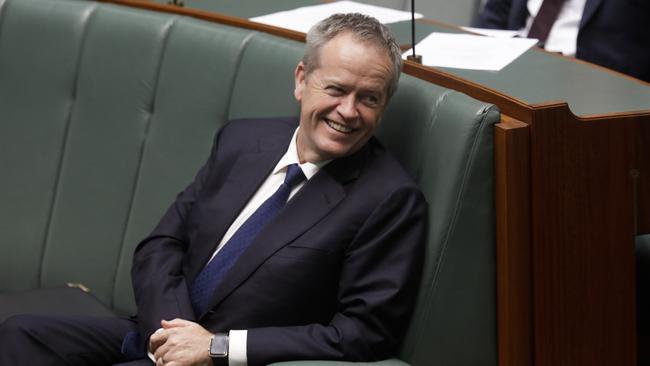
“Bill Shorten launched a book. Labor Party people write books. Labor Party people launch books. We’re the party of ideas,” he said.
Mr Albanese said Labor had already announced major policy decisions.
“Wage subsidies, they’ve now been done. Mental health support for people during COVID. They’ve been done. Increase to Newstart – that was done,” he said.
Mr Shorten has ruled out a challenge to Anthony Albanese’s Labor leadership in the run-up to the next election, but has refused to back down from criticism of the party’s policy agenda.
READ MORE: Shorten denies Albanese challenge
Ellie Dudley 11.10am: Zero new local cases extends NSW streak
New South Wales has reported no new cases of locally transmitted coronavirus in the 24 hours to 8pm last night, marking an eight-day streak for the state.
There were three cases acquired overseas, all in hotel quarantine.
Low testing numbers remain a concern for state health authorities with 8,689 tests conducted yesterday.
Premier Gladys Berejiklian is scheduled to give a press conference at 12.15pm.
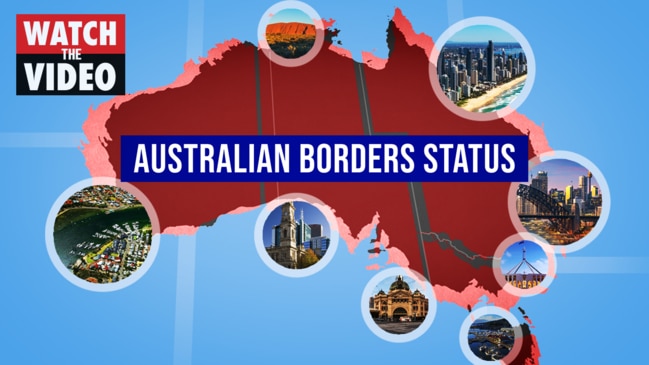
Adeshola Ore 10.55am: Opposition pressure to accelerate rollout
Anthony Albanese has called on the Morrison government to accelerate its vaccination rollout.
The rollout of the Pfizer vaccine is set to begin in late February and commence with 80,000 doses a week.
The Opposition Leader urged the government to begin the rollout of the Pfizer vaccine as quickly as possible.
“In the US, Canada, the EU and the UK, doses were administered within one week of approval. How long will Australian have to wait after now?”
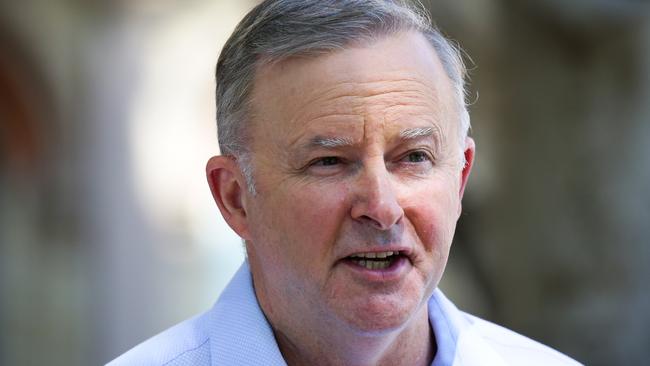
“If the Morrison Government had secured the Pfizer deal before other countries had secured one billion doses of their own, maybe the government would have more than one in five Australians being looked after by this vaccine,” he said.
“The Prime Minister has also committed to four million people being vaccinated by the end of March. We’ll be holding him to account on that.”
Earlier today, Health Minister Greg Hunt predicted the four million target would be reached in early April rather than late March as the government had flagged earlier.
“That is the reality of dealing with international arrangements. These are things that are beyond our control,” he said.
READ MORE: Big tech urged to challenge virus lies
Natasha Robinson 10.45am: Why we’re lucky to be getting Pfizer vaccine
The first Australians to be given a COVID-19 vaccine will be getting one of the best vaccines on the market.
The Pfizer-BioNTech vaccine showed efficacy of 94 per cent in clinical trials, meaning almost everyone who is immunised with it who may be unfortunate enough to catch COVID-19 will be protected from illness.
After the Therapeutic Goods Administration (TGA) this morning provisionally approve the Pfizer vaccine, five million Australian will be able to get the vaccine. The first immunisations are due to take place in late February or early March, and will include 678,000 people, including some frontline healthcare workers, quarantine and border workers, aged and disability care staff and aged care residents.
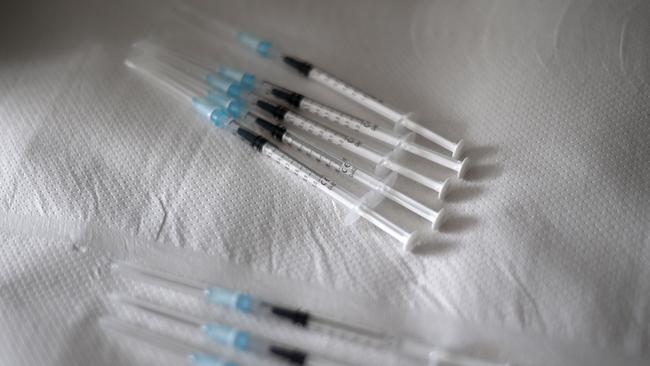
The next phase will include all elderly adults, other healthcare workers, Aboriginal and Torres Strait Islander people over 55, younger adults with certain health conditions, and critical and high risk workers in defence, police, fire and emergency services and meat processing.
The first vaccine approved by regulators anywhere in the world, the Pfizer vaccine utilises new technology that induces the body to make the coronavirus’s spike protein and then mount an immune response against it.
READ the full story here.
Ellie Dudley 10.15am: No fresh community transmission cases in Qld
Queensland has recorded no new cases of community transmission over the past 24 hours.
The state discovered two cases that were acquired overseas, both of which are in quarantine.
A total of 4134 tests were conducted yesterday, leaving Queensland with 15 active cases.
Monday 25 January – coronavirus cases in Queensland:
— Annastacia Palaszczuk (@AnnastaciaMP) January 24, 2021
• 0 new locally acquired cases
• 2 overseas acquired cases
• 15 active cases
• 1,305 total cases
• 1,729,704 tests conducted
Sadly, six Queenslanders with COVID-19 have died. 1,278 patients have recovered.#covid19 pic.twitter.com/0e9vBNbTKU
Ellie Dudley 10.10am: Virus expert stresses patience with vaccine rollout
An immunisation expert has said Australians “will have to be patient” with the roll out of the COVID-19 vaccine.
“I think Australia is ready for this,” Surveillance for Immunisation Research Professor Kristine Macartney told The Morning Show. “But we need to remember that we are still seeing capacity being developed to produce vaccines across the world.”
“It will not be super fast and people will not be super fast and people will have to be patient and globally we are going to grow supply but it will take time.”
In addressing Pfizer’s 95 per cent efficacy rate, Ms Macartney said not everybody will be protected every time from every vaccine dose.
“That is the case from all vaccines we use,” she said. “What it means is that if you are not protected then you will have to rely on everybody around you to be vaccinated and that is going to take a while but what we get that very high uptake.”

Adeshola Ore 10.05am: Vaccines rollout ‘not a silver bullet’: PM
Scott Morrison has warned that the rollout of the Pfizer and AstraZeneca vaccines is “not a silver bullet.”
Mr Morrison said Australians will need to remain vigilant in 2021 regarding the risk of COVID, despite the rollout of the Pfizer vaccine on track to begin in late February.
“It is important to understand that once the vaccine starts, that doesn’t mean you can jump on a plane to Bali the next day. It doesn’t mean that the masks disappear.” the Prime Minister said.
Department of Health Secretary Professor Brendan Murphy said health authorities did not know if the COVID vaccines in Australia’s portfolio prevented transmission of the virus.
“It stands to reason that these vaccines will also prevent, to some degree, transmission of the virus but we don’t know how effective they are at doing that,” he said.
Adeshola Ore 9.55am: 24-hour vaccination program not needed: Murphy
Department of Health Secretary Professor Brendan Murphy says Australia is not in a crisis mode that would require a 24-hour vaccination program.
“When you set up a scale like that, there are risks associated and we want to make sure this is risk-free,” he said.
“We want to make sure our supply chain works. We want to make sure we have the right numbers of an appropriately qualified vaccination work force.”
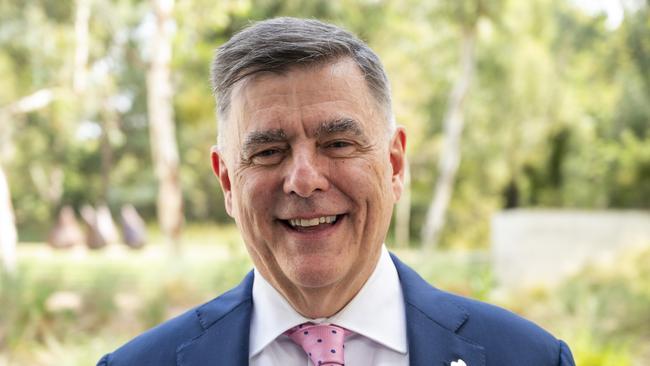
Professor Brendan Murphy said Australia was in ongoing discussions with all major vaccine companies, but had not signed a contract for supply of the high-efficacy Moderna vaccine.
Health experts have been calling for Australia to expand its suite of COVID-19 vaccines.
READ MORE: Calls to expand vaccine portfolio
Adeshola Ore 9.45am: Vaccine rollout to start with 80,000 doses a week
Federal Health Minister Greg Hunt says said the completion of the vaccine rollout is on track from October.
Australia has secured 140 million units of COVID vaccines.
The Pfizer element is 10 million of that total.
“This approval by the TGA is one of the earliest in the world for a full approval.” Mr Hunt said the rollout would begin with at least 80,000 doses per week.
Mr Hunt said domestic AstraZeneca production will see supplies of approximately one million doses per week commencing in late March.
Mr Hunt said the decision to secure local production of AstraZeneca put Australia in a “vastly more secure position than almost any other country in the world.”
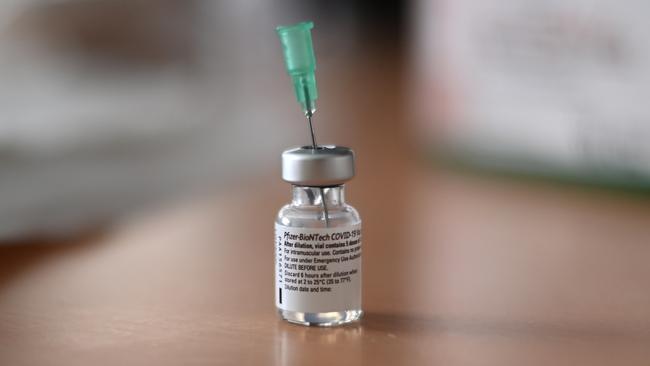
Adeshola Ore 9.35am: Seven days of zero local transmission nationally
Federal Health Minister Greg Hunt has declared today an “important step forward” in protecting Australians against COVID and saving lives.
Mr Hunt said Australia had recorded seven consecutive days of zero cases
of community transmission and nine out of the last ten days had seen zero community transmission
“That’s a testimony to the work of all Australians, all governments and all health officials involved in all of the chains of the containment and capacity process,” he said.
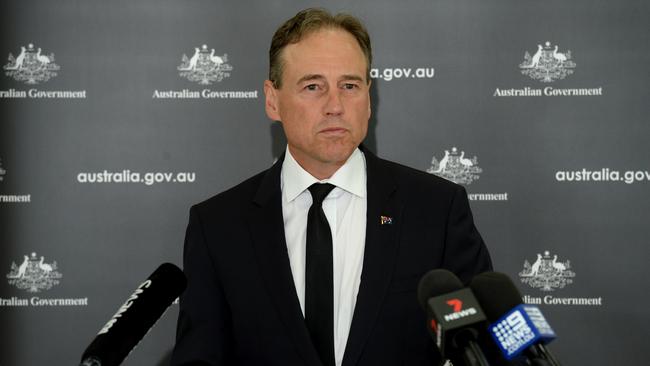
Adeshola Ore 9.25am: Supply issues push vaccine rollout to late February
Mr Morrison says the rollout of the Pfizer vaccine will begin in late February rather than mid-February due to supply issues faced by countries abroad.
The Prime Minister stressed that the Therapeutic Goods Administration had not initiated an emergency approval of the vaccine.
“This is a formal approval under the ordinary processes of the TGA and we are one of the first countries in the handful of countries to have gone through that comprehensive and thorough process here in Australia to ensure the approval of that vaccine,” he said.
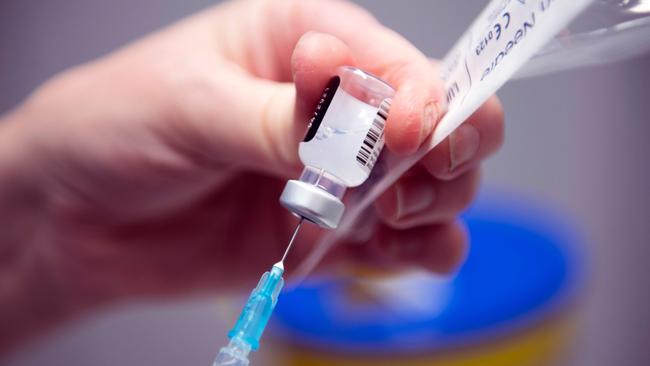
Adeshola Ore 9.25am: Australia virus response ‘envy of world’: PM
Scott Morrison has thanked Australians for making the country the envy of the world in its response to COVID, as he announced the Pfizer vaccine has been approved for rollout.
The Prime Minister said Australia has fared “better than almost any other country in the world”, as the country marked one year since the first case of COVID-19 was recorded.
“You have put us in a situation that is the envy of most countries in the world today,” the Prime Minister said.
“What an extraordinary year it has been over these past 12 months.”
Richard Ferguson 9.20am: Vaccine approval big step for Australia: PM
Scott Morrison says the approval of the Pfizer vaccine is a big step for the nation and protecting vulnerable Australians from coronavirus.
The Therapeutic Goods Administration has approved the vaccine – the first to be green-lit in Australia – and will kick off a months-long effort starting in mid-February to vaccinate all Australians from COVID.
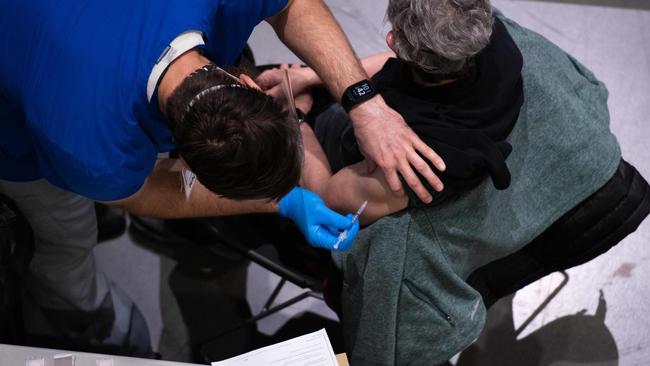
The Prime Minister on Monday said the vaccine’s testing had been rigorous and independent.
“I welcome the TGA’s approval of the Pfizer vaccine, with our own Australian experts finding it is safe, effective and of a high standard,” the Prime Minister said.
“Australians should take confidence in the thorough and careful approach taken by our world-class safety regulator.
“Our priority has always been to keep Australians safe and protect lives and livelihoods. Today’s approval is another big step forward for our community, particularly in the protection of our most vulnerable people.”
The Pfizer vaccine has one of the highest efficacy rates against coronavirus and was the first anti-COVID jab to be approved in the United States and Europe, but it has been linked to the deaths of elderly recipients in Norway.
Health Minister Greg Hunt said the TGA had set a high bar for Pfizer’s ultimately successful submission.
“The TGA has placed safety above all else,” Mr Hunt said.
“Australia’s high bar has been met; the vaccine has been approved as effective in stopping severe disease. I thank all those involved in the development and assessment of this COVID-19 vaccine, including the researchers, Pfizer, BioNTech and the medical experts at the TGA who have worked around the clock and over Christmas.”
“This approval and the upcoming roll out of the vaccine will play an important part in our ability to manage the pandemic in 2021.”
READ MORE: Advice sought after Pfizer deaths
Nicholas Jensen 9.10am: Violent riots as Dutch rail against curfew
Violent demonstrations have broken out in the Netherlands as anti-curfew protesters have railed against the introduction of new COVID-19 restrictions.
A testing centre was burned in the village of Urk, while police used tear gas against demonstrators in the southern city of Eindhoven, where cars were burned and businesses looted.
Police also deployed water cannons and dogs in central Amsterdam to contain the protesters.
“The fire in a [COVID-19] screening centre in Urk goes beyond all limits,” Health Minister Hugo de Jonge said.
Clashes broke out on the first day of the new curfew, the country’s first since World War II.
The demonstrations mark the worst violence the country has seen since the beginning of the pandemic.
While the Netherlands has been under a tough lockdown since December, the country’s restrictions are set to continue until at least early February.
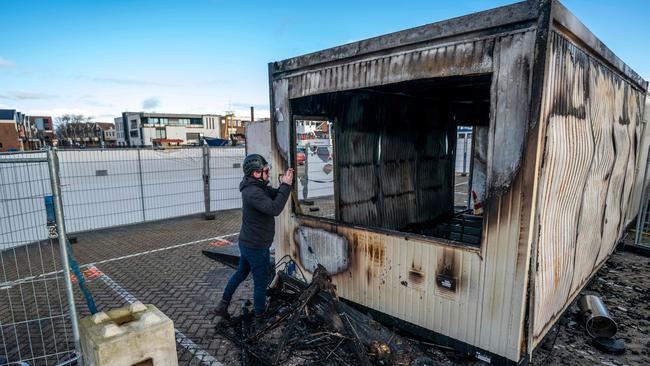
Adeshola Ore 9.05am: ABC ‘clearly wrong’ on ‘Invasion Day’ call: Fletcher
Federal Communications Minister Paul Fletcher has ramped up his attack on the ABC after the public broadcaster defended its decision to refer to January 26 as “Invasion Day” in an online news article.
The ABC said it was inappropriate to enforce that staff call it Australia Day or “use any one term over others in all contexts”. The article titled “Australia Day/Invasion Day 2021 events for Sydney, Melbourne, Canberra, Brisbane, Perth, Adelaide, Hobart and Darwin”, described the January 26 public holiday as “one of the most polarising dates on the Australian calendar”.
“The ABC has clearly got this one wrong,” Mr Fletcher said in a statement.
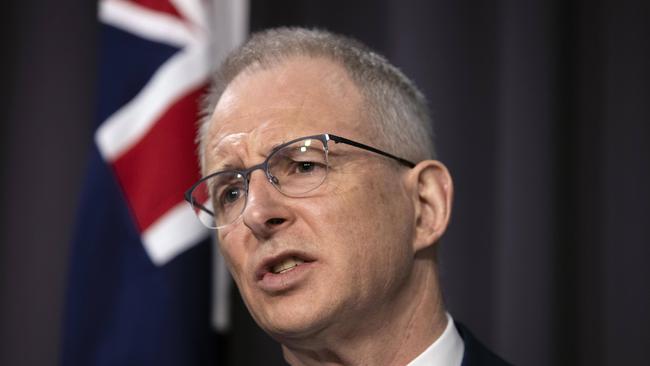
“The name of our national day is well understood and supported, and for the ABC to suggest otherwise — that in some way Invasion Day is interchangeable with Australia Day — is clearly wrong.”
Mr Fletcher said the ABC had editorial independence, but called on the broadcaster to correct the “inaccurate article.”
READ MORE: ABC defends use of ‘Invasion Day’
Ellie Dudley 9.00am: TGA provisionally approves Pfizer vaccine
The Therapeutic Goods Administration has granted provisional approval for the Pfizer vaccine, making it the first COVID-19 vaccine to receive regulatory approval in Australia.
Following a thorough and independent review of Pfizer’s submission, the TGA has decided that this vaccine meets the high safety, efficacy and quality standards required for use in Australia.
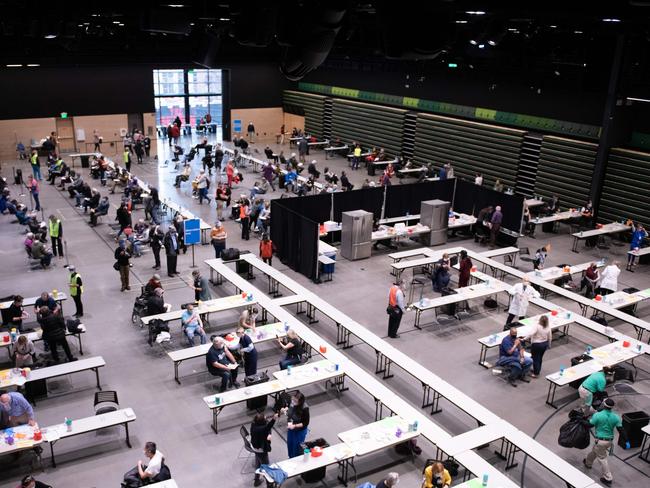
The provisional approval of this vaccine is valid for two years and means it can now be legally supplied in Australia.
The roll out of the vaccine is subject to certain strict conditions, such as the requirement for Pfizer to continue providing information to the TGA on longer term efficacy and safety from ongoing clinical trials and post-market assessment.
The vaccine has been shown to prevent COVID-19 however it is not yet known whether it prevents transmission or asymptomatic disease.
In a statement today, the TGA said it will continue to actively monitor the safety of the Pfizer vaccine in both Australia and overseas, and “will not hesitate to take action” if safety concerns are identified.
Additionally, the TGA laboratories will undertake independent assessment for every batch of the vaccine before it is supplied to Australia.
The TGA has published a series of regulatory documents that relate to this decision, including the Australian Public Assessment Report and the decision summary. They are available on the TGA website.
READ MORE: Vaccines the big unknowable
Ellie Dudley 8.50am: Ravers arrested for breaching restrictions
Over 300 people have been caught attending an illegal rave in northeast London on Saturday night.
Officers raided the unlicensed music event at a railway arch in Hackney at around 1.30am on Sunday and issued dozens of fines to guilty attenders.
The organisers of the rave had padlocked the door from the inside. When the officers arrived, attenders scaled fences to escape, the Met Police said.
A total of 78 people were issued with £200 fixed penalty notices for breaching COVID lockdown by attending the gathering, the force added.
“Officers were forced, yet again, to put their own health at risk to deal with a large group of incredibly selfish people who were tightly packed together in a confined space – providing an ideal opportunity for this deadly virus to spread,” Chief Superintendent Roy Smith said.
“Our frontline officers continue to police this public health crisis with compassion and professionalism but it is completely unacceptable they have to face such needless risks to their own health and to their families too.
Nicholas Jensen 8.35am: Biden closes borders to South Africa, Brazil, UK
President Joe Biden will impose a travel ban on non-US citizens entering the country who have recently been in South Africa in a bid to contain the spread of a new COVID-19 variant.
Mr Biden plans to reimpose a ban on nearly all non-US travellers who have been in Brazil, the UK, Ireland and 26 other countries in Europe that allow travel across open borders, Reuters has reported.
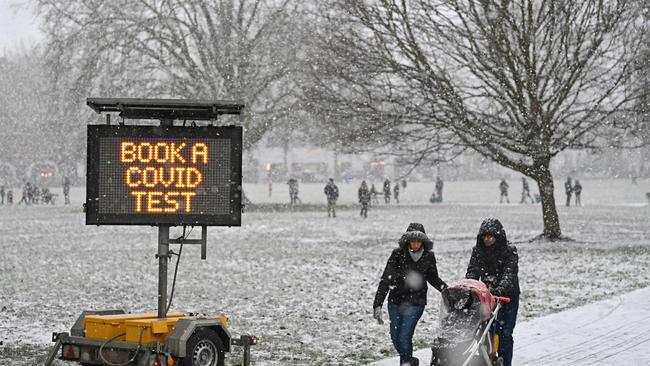
Earlier this month former President Donald Trump attempted to lift restrictions on Brazil and Europe, but Mr Biden is set to reverse that decision.
US health authorities are concerned that current vaccines may not be effective against the South Africa variant, raising fears of potential reinfection.
The South African variant has not yet been detected in the US but at least 20 states have found the UK variant. However, current US vaccines appear effective against the UK mutations.
READ MORE: Deadly new foe in battle for hearts and lungs
Adeshola Ore 8.30am: Shorten: Don’t learn wrong lessons from the past
Former Labor leader Bill Shorten has downplayed his criticism of Anthony Albanese, after he reignited party divisions.
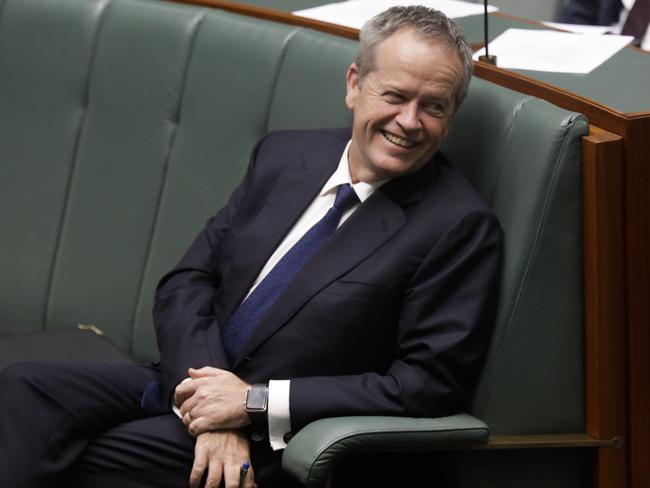
Mr Shorten attacked his successor’s “tiny” policy agenda and warned it would not win the party the next federal election. Mr Shorten, who took Labor to two election losses, also called for the opposition to be a party that “stands for something.”
“I don’t think we have a tiny policy agenda but I do think it’s important we learn the lessons of the past but we don’t want to learn the wrong lessons,” Mr Shorten told the ABC.
“Having a no-policy approach would be a mistake.”
READ the full story
Rachel Baxendale 8.20am: Victoria records 19th day of no cases
Victoria has recorded its 19th straight day with no new locally acquired coronavirus cases.
There were six new cases detected in international return travellers in hotel quarantine in the 24 hours to Monday.
It is not yet clear whether any of these is linked to the Australian Open tennis tournament.
There are currently 31 active coronavirus cases in Victoria – all in international return travellers in hotel quarantine.
The latest figures come after 11,806 tests were processed on Sunday.
Yesterday 0 locally acquired cases were reported, 6 in hotel quarantine. It’s been 19 days since the last locally acquired case. 11,806 test results were received #EveryTestHelps.
— VicGovDHHS (@VicGovDHHS) January 24, 2021
More later: https://t.co/2vKbgKHFvv #COVID19VicData #COVID19Vic pic.twitter.com/UGjW46eWUI
Adeshola Ore 8.10am: Hopes Albo criticism will drive Labor to unity
Labor MP Joel Fitzgibbon says he hopes internal criticism of Anthony Albanese’s leadership will drive the Labor Party towards unity and victory at the next election.
Former Labor leader Bill Shorten reignited party divisions after he attacked his successor’s “tiny” policy agenda and warned it would not win the party the next federal election.
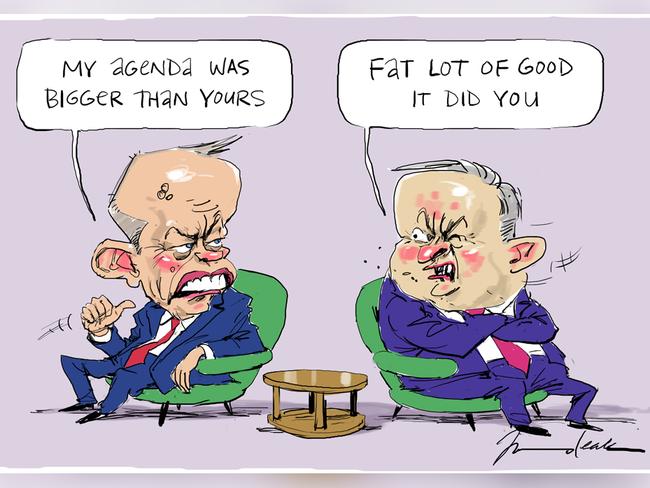
“I hope it drives us towards a point of unity and agreement on things that will matter so much when the next election comes around,” Mr Fitzgibbon told Sky News.
Launching The Write Stuff in St Kilda on Sunday, a collection of essays by Labor Right MPs and factional figures, Mr Shorten set out an alternative approach for the Labor Party and called for an opposition “that stands for something”.
“He was launching a book in which most of the authors were either expressing concern about the party’s performance or reminding the party not to walk away from its traditional base,” Mr Fitzgibbon said.
He said he believed Mr Shorten had learnt from the mistakes he made as a leader when he lost the 2019 election, including a platform of progressive policies.
“He’s expressing a frustration that we’re not now doing better.”
Mr Fitzgibbon quit shadow cabinet late last year amid a battle to shift Labor towards a smaller emissions reduction target policy.
READ MORE: Shorten attacks Albanese’s ‘tiny’ agenda
Ellie Dudley 8.00am: Calls for testing in Northern beaches, western Sydney
New South Wales health authorities are asking people in the northern beaches and parts of western Sydney to come forward for testing after traces of the virus were found in sewage.
“There’s no way of knowing whether it’s past cases or current cases,” health minister Brad Hazzard said.
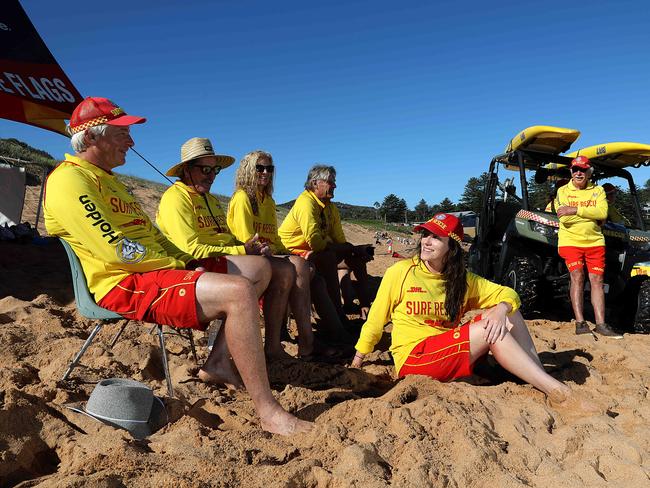
“NSW health is actually asking everybody, in those areas, basically right across NSW … to make sure you go and get tested with any symptoms.”
Mr Hazzard hinted that the state may be lifting restrictions shortly, pending conversations with the crisis cabinet.
It has now been six days since a community transmitted case of the virus has been detected in NSW.
“Normally the requirement is for at least one lot of 14 days since the last transmission,” Mr Hazzard told Today. “But, of course, striking the balance and making sure our state is open as we have done right throughout this pandemic is so important.”
READ MORE: New virus warnings for 1.3 million
Ellie Dudley 7.55am: Olympics ‘will go ahead with restrictions’
Australian Olympic Committee CEO Matt Carroll has confirmed the Tokyo Olympics will go ahead in July, with increased restrictions for athletes.
“It is going to be very focused around the athletes and the events,” Mr Carroll said.
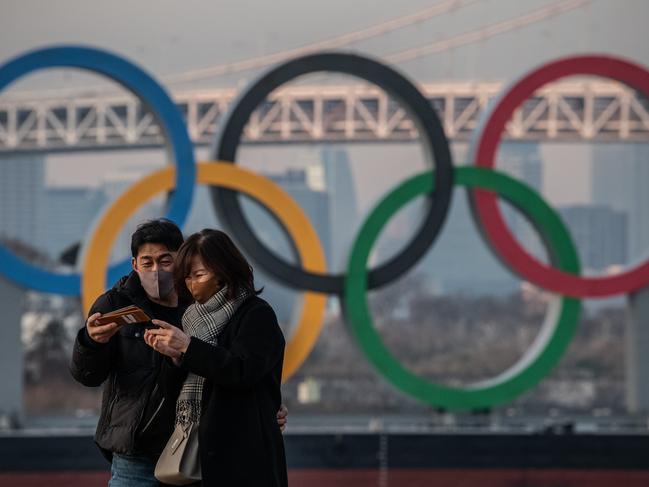
“The athletes will arrive four to five days prior to their event and they will leave 48 hours after their event. Their whole Olympic experience is going to be very different.”
He also said the athletes “won’t have a lot of the ceremony” that is usually seen at the Olympics, but that the most important thing is that it goes ahead.
Competitors in the games will be tested in their home country 72 hours before departure. They will be tested again on arrival in Tokyo before going to the Olympic village and then every day after that.
READ MORE: Thousands ‘voucher’ for staycations
Nicholas Jensen 7.50am: ‘Long way’ from easing UK lockdown
British Health Secretary Matt Hancock has said the UK is still a long way from relaxing national lockdown despite evidence that restrictions are reducing the rate of COVID-19 infections.
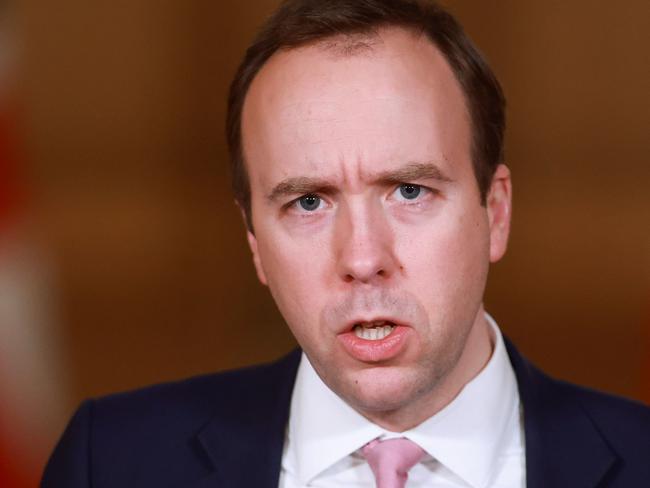
“There is early evidence that the lockdown is starting to bring cases down. But we’re a long, long, long way from that from being low enough because the case rate was incredibly high and you can see the pressure on the NHS,” he said in an interview on Sky News.
Mr Hancock said that while he hoped schools could reopen by Easter, it would depend on the rates of infection at that time.
“We have got to look at the data, we have got to look at the impact of the vaccination program,” he said.
The UK has recorded 610 COVID-19 related deaths in the latest reporting period, along with an additional 30,004 cases.
It brings the total number of COVID-19 deaths in the UK to 97,939 since the beginning of the pandemic.
READ MORE: 2021: All the answers are in the vaccine
Ellie Dudley 7.40am: Vaccines ‘may not protect against variants’
A vaccine research developer has said the “major concern” of the COVID-19 vaccine is that it may not protect against new mutant variants.
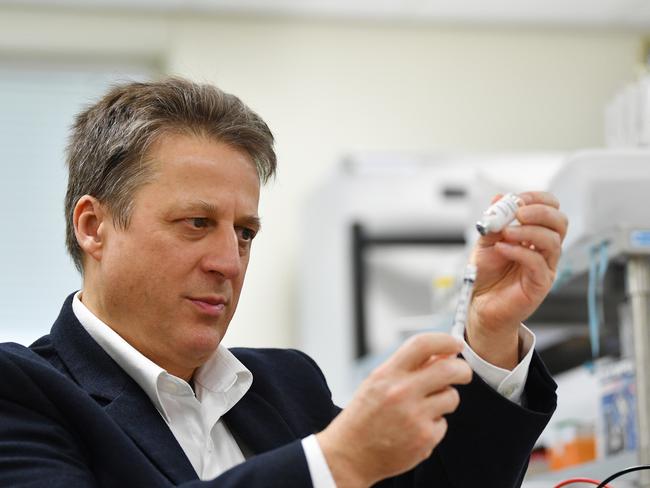
"There’s a little bit of early data in test tubes testing the Pfizer vaccine against the UK strain,” Professor of Medicine at Flinders University Nikolai Petrovsky said.
“But as I say, we don’t know about the South African strain or the Brazilian strain. This is a major concern that these vaccines may not be effective against the new strains.”
Mr Petrovsky also said Australia shouldn’t rush the vaccine roll out due to the small number of cases in the country.
“I’m quite happy with the progress that we’re making here in Australia.,” he said.
READ MORE: Double vaccine rollout plan
Ellie Dudley 7.35am: Dedicated quarantine facilities ‘not as easy as it sounds'
The Australian Medical Association Vice-President Dr Chris Moy has said creating dedicated quarantine facilities in Australia is “not as easy as it sounds”.
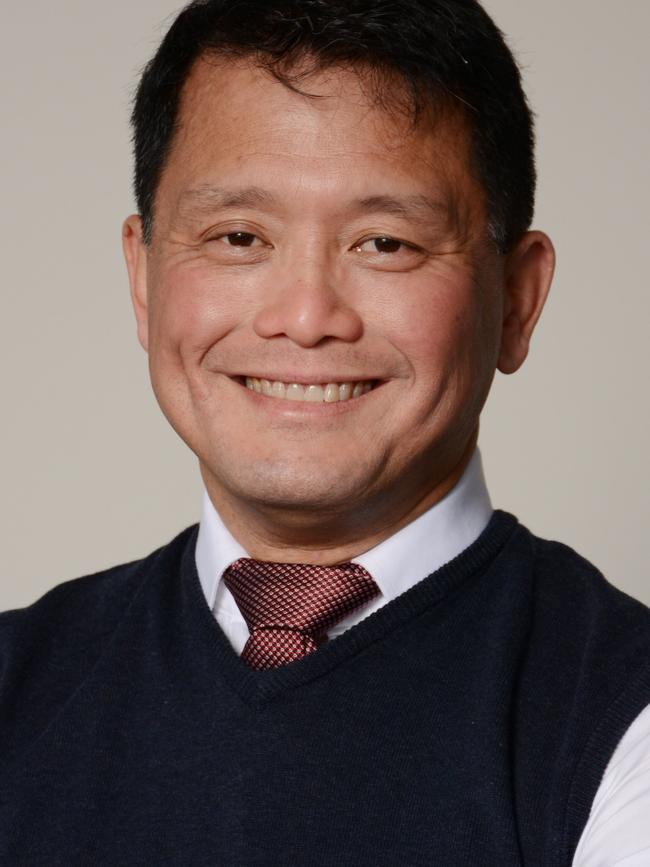
“The one thing that’s not known is that really, you have to be able to get the staff out there on a continuous basis, essentially isolated,” he told ABC News this morning. “There’s not that many people willing to do that.”
“The other thing is that you have to get medical services out there of a high quality. Because individuals who have COVID can get sick very, very quickly.”
This comes as Queensland Premier Annastacia Palaszczuk plans to quarantine returned travellers at regional mining camps, with a number of options on the table, including in Gladstone and Toowoomba.
Ellie Dudley 7.30am: Ardern: Keep up the kindness, don’t blame
New Zealand Prime Minister Jacinda Ardern has encouraged Kiwis to “keep up the kindness” and not blame anyone for the newly emerged community case of COVID-19.
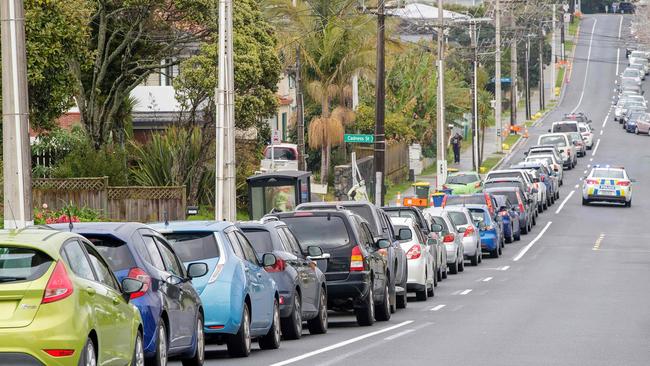
“Sometimes there’s a tendency to blame and the message I want to share is the most important thing for us is that people who are unwell keep getting tested,” Ms Ardern said in a video posted to her Facebook. “People are less likely to do that if they feel like they are going to be attacked.
“We need people to keep feeling like they can come forward, so it’s so important that we keep up the kindness and we treat people how we would like to be treated.”
Ms Ardern also said New Zealand will not close its borders.
“As a NZ citizen you have a right to come back to NZ. If we denied you the right to come back to NZ, we would be making your stateless,” she said.
“We wouldn’t get in our imports, we wouldn’t be getting goods into our country, we wouldn’t be getting out medical supplies.”
New Zealand health officials are currently conducting genome sequencing to gain a greater understanding of the origins of the case.
Ms Arden said they should have the results within 24 hours, to determine whether the case was contracted overseas and had a late onset, or while in quarantine.
READ MORE: Rollout to recruit specialist jab force
Ellie Dudley 6.55am: ‘No evidence vaccines cause death’
Health experts have said there is no evidence coronavirus vaccines can cause death, despite dozens of fatalities occurring shortly after inoculation.
European health agencies say the vast majority of the deaths were elderly, sick or vulnerable people.
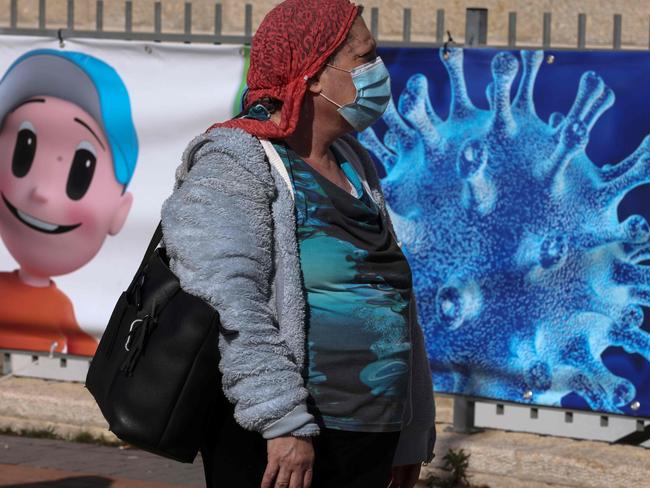
No cause-and-effect relationship has been identified between those who have died and the vaccination.
In many countries – such as France, Britain and Spain – the elderly and vulnerable are first to be vaccinated.
“It is not unexpected that some of these people may naturally fall ill due to their age or underlying conditions shortly after being vaccinated, without the vaccine playing any role in that,” the Medicines and Healthcare products Regulatory Agency in the UK said.
Globally, more than 60 million doses have been received in at least 64 countries or territories, according to an AFP tally on Saturday.
READ MORE: AstraZeneca claims ‘not evidence based’
Nicholas Jensen 6.50am: NZ records first community case in two months
New Zealand health officials have confirmed the country’s first case of COVID-19 for more than two months, sparking urgent contract-tracing efforts north of Auckland.
A 56-year-old woman who recently returned from Europe tested positive 10 days after completing two weeks in managed isolation.
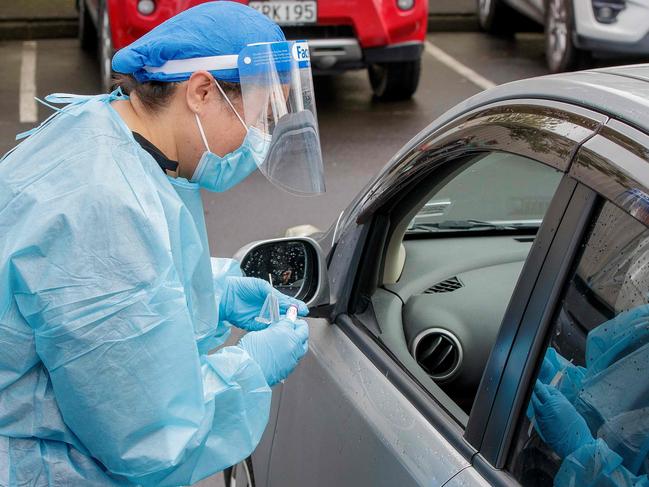
Contact tracing was underway after it was revealed the woman and her husband spent several days travelling around the Northland region while she was potentially infectious, visiting about 30 different locations.
Health Minister Chris Hipkins said it was too soon to understand whether a full or partial lockdown would be necessary.
“We don’t know the origin or the strain of the infection,” he told a press conference.
The woman returned to New Zealand on December 30 after spending four months in Europe. She was released from hotel quarantine in Auckland on January 13.
READ MORE: Australia plan ‘better than NZ strategy’
Nicholas Jensen 6.40am: US cases reach 25 million in grim new record
More than 25 million COVID-19 cases have been recorded in the US since the beginning of the pandemic, according to Johns Hopkins University.
The grim milestone was reached five days after the US – the world’s worst hit country – recorded 400,000 deaths from the disease.
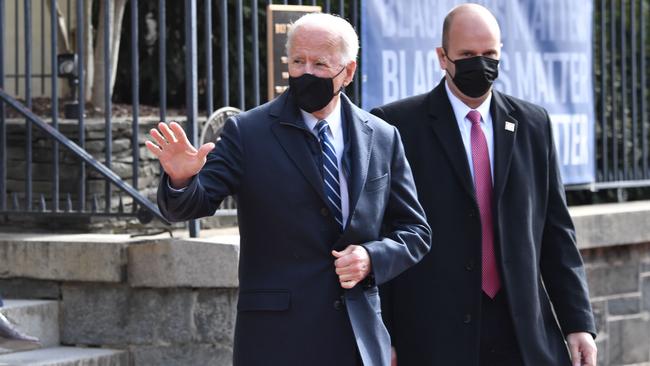
President Joe Biden has made fighting the pandemic a key priority, with Congress set to commit a $1.9-trillion relief package, which would contribute billions of dollars to boost vaccination rates.
Mr Biden has said he wants 100 million people vaccinated within his first 100 days in office, calling on all Americans to wear masks for the entirety of that period.
Vivek Murthy, Mr Biden’s nominee for surgeon-general, told ABC News on Sunday that 100 million doses in 100 days was “a floor, not a ceiling” and cautioned about new strains.
“The variants are very concerning,” Mr Murthy told the network. “It’s up to us to adapt and stay ahead,” he added.
The US caseload remains the highest in the world in absolute terms.
Since the first COVID-19 case was reported in January 2020, it has taken until late April for cases to pass one million.
READ MORE: Vaccines the big unknowable for 2021
Ellie Dudley 6.35am: Countries lock down as variants spread
Around the world, countries are enforcing strict lockdown measures as the coronavirus continues to tighten its grip and new variants spread.
German health minister Jens Spahn announced yesterday the country has spent more than 400 million euros on 200,000 doses on an experimental treatment.
The antibody treatment, also given to former US president Donald Trump when he was hospitalised for the virus in October, works as a “passive vaccination” according to Ms Spahn.
“Administering these antibodies in the early stages can help high risk patients avoid a more serious progression,” she told Bild am Sonntag.
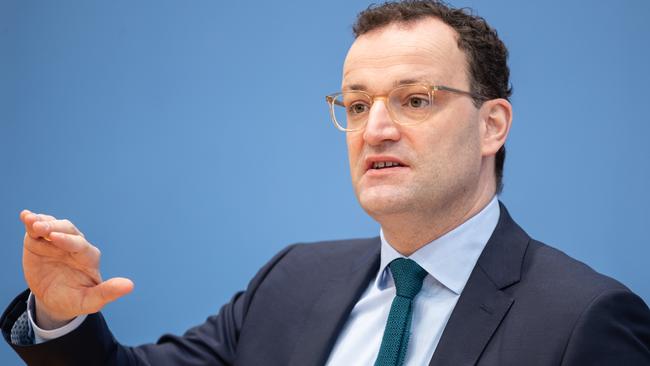
Anti-lockdown demonstrations have been active across Europe, with the Netherlands, Spain and Denmark seeing protesters hit the streets.
Vehicles and businesses have been burned or looted, and the effigy of Prime Minister Mette Frederiksen was set on fire.
Sweden has closed its border with Norway after a cluster of cases of the highly contagious UK variant was detected outside capital Oslo last week.
Around the world, more than 63.5 million doses of vaccine have been administered in 68 countries and territories, according to an AFP tally.
At least 2,121,070 people have died of coronavirus since the outbreak emerged in China in December 2019.
More than 98,689,590 cases of coronavirus have been registered.
However the number of diagnosed infections is only a fraction of the real total because a significant number of less serious or asymptomatic cases go undetected.
READ MORE: Israel rolls out vaccine for high school children
Natasha Robinson 6.00am: Calls to expand vaccine portfolio
Health experts are calling for Australia to expand its suite of COVID-19 vaccines amid concern the federal government has not signed a contract for supply of the high-efficacy Moderna vaccine.
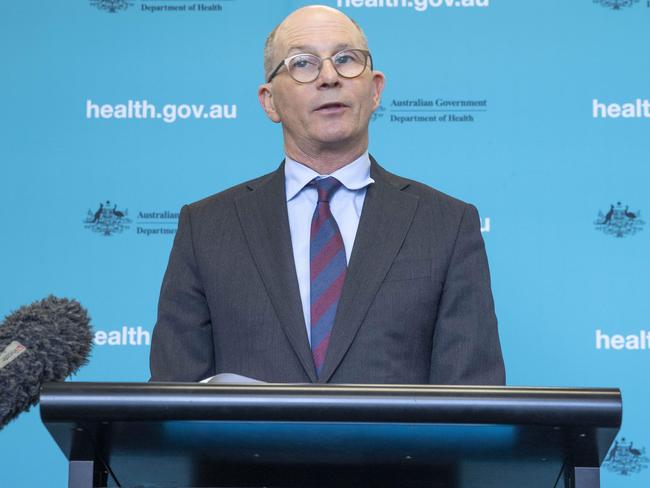
Australians are likely to have access to three probable COVID-19 vaccines during the coming year. Five million Australians will be given the Pfizer vaccine, while the AstraZeneca vaccine looks set to be available for most of the population. Later in the year, it’s expected that Australians will also have access to the Novavax protein-based vaccine.
The two vaccines that have so far proven to have the highest efficacy in clinical trials are the vaccines developed by Pfizer-BioNTech and Moderna, both utilising mRNA technology.
However, Australia has been unable to reach agreement with Moderna over the supply of its vaccine. The reasons for the impasse have not been disclosed by the federal government. When pushed on the issue, Chief Medical Officer Paul Kelly indicated Moderna had been unwilling to sign an agreement with Australia.
Epidemiologist Zoe Hyde from the University of Western Australia called for Australia to expand the number of vaccines in which it was investing.
“We need to urgently diversify our vaccine portfolio, and should start by acquiring the Moderna vaccine,” Dr Hyde said.
READ the full story
Adam Creighton 5.45am: Australia plan ‘better than Kiwi strategy’
Australia’s coronavirus eradication strategy has been more efficient than New Zealand’s, although still very costly to the economy, according to analysis that finds lockdowns since March have saved about 11,000 lives so far.
Economist Martin Lally, who has estimated New Zealand’s eradication strategy had saved about 900 lives at a cost of $NZ2.3m a year of life saved, has put the equivalent cost in Australia at about $750,000 a year – about seven times what Australian governments typically spend to save lives.
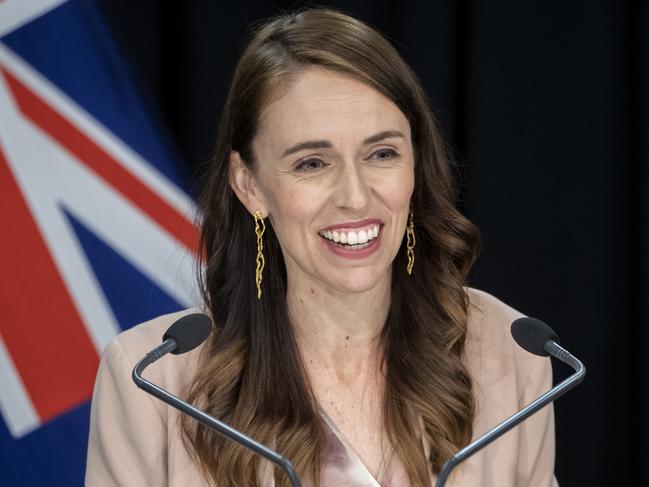
“I based my analysis on outcomes in European and Latin American countries; deaths were always likely to be lower in Australia than Europe because Australia is an island, and islands such as Iceland, Cyprus and various Caribbean countries have had much lower death rates regardless of lockdown policies,” he told The Australian.
“Australia would have been in a favourable position had it pursued mitigation rather than eradication because of … low population, no land borders and low population density.”
His research comes as governments globally scramble to vaccinate their populations against COVID-19 to avoid further lockdowns.
Dr Lally’s analysis contrasts the outcome of a hypothetical “Sweden-style” mitigation strategy — banning large gatherings, quarantining of infected persons and social distancing for high-risk groups — against Victoria-style hard lockdown that included shutting businesses and forcing people to stay at home.
READ the full story
Courtney Walsh 5.30am: ‘Quarantine Open’ for lockdown players
Tennis authorities have bowed to the concerns of players caught in a strict lockdown in Melbourne adopting a series of measures including an additional tournament for women.
With dozens of leading women enduring a compromised preparation, a 500-tier level tournament will be held with entry restricted to players currently enduring strict quarantine.
![Tennis players getting in their 2 hour training session at Xavier College tennis courts in Kew. Ash Barty after training [left]. Picture: Alex Coppel.](https://content.api.news/v3/images/bin/c51d64fa87ea998d5f9f8aaf944724a6?width=650)
The development on Sunday adds another leg to what will be an unprecedented and historic week of tennis held in Melbourne before the first major of 2021 being played.
It expands to six the number of tournaments held at Melbourne Park in the week leading into the Australian Open, with approximately $12 million up for grabs, the majority of that prize money in the ATP Cup.
It is understood there are at least 30 WTA players in “hard lockdown”, with almost all of them to feature in a 28-draw singles tournament to run between February 3 and 7.
Reigning Australian Open champion Sofia Kenin and former winners Victoria Azarenka and Angelique Kerber will be among the competitors in the “Quarantine Open”.
READ the full story

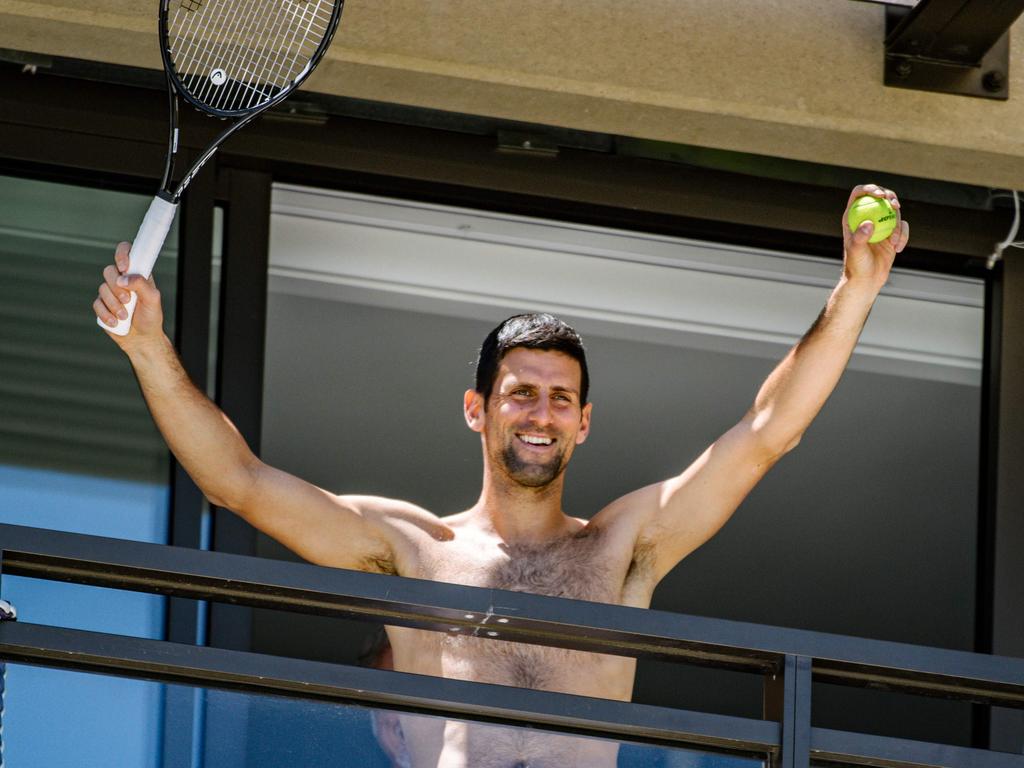


To join the conversation, please log in. Don't have an account? Register
Join the conversation, you are commenting as Logout